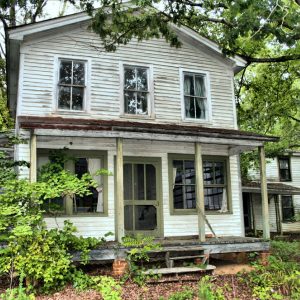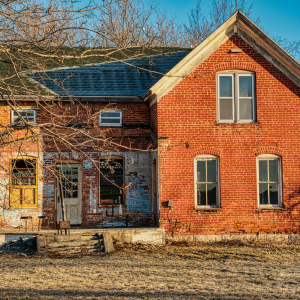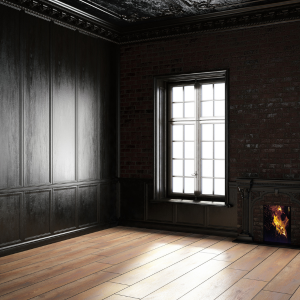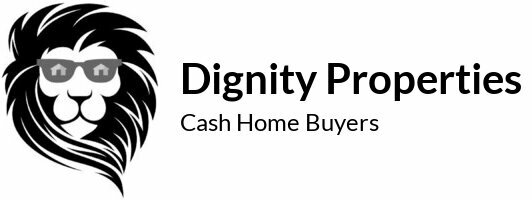
Understanding Property Maintenance Laws in Chattanooga, TN
For the best chance at getting the most money when you sell your home for cash in Chattanooga, TN, you should know the rules for maintaining it so that nothing goes wrong. While no one lives in a house, the city follows certain rules to ensure that it stays safe and clean.
Property owners must follow rules for caring for the outside of their houses. For example, they must mow their lawns, make sure buildings are secure, and keep trash and other things from piling up that could attract pests or make the neighborhood look less nice. People who own homes should also know the rules about putting up signs that say the house is empty and locking the windows and doors to keep people from getting in or damaging them.
To make sure that building codes for structural stability and good looks are being followed, it is best to have regular checks. People who own property in Chattanooga can better protect their investment and avoid the fines or fees that come with not taking care of their legal duties by learn about these duties.
Legal Requirements for Leaving a House Vacant in Chattanooga, TN
When you leave your Chattanooga, TN, home empty, it’s important to follow the rules to keep it safe and get the most money for it. The first thing you should do is make sure you are following all neighborhood and zoning laws. These may have rules about how long a property can be empty.
Keeping up with your energy bills and keeping the outside in good shape is important because the city could fine you if you don’t. You might also want to protect yourself against things like theft or natural disasters by getting protection for your empty home.
If you keep your contact information up to date with your local government, you’ll be sure to know about any changes to the law or problems with your property. If you want to rent out the house briefly, you should also know the rules in your state and city regarding landlords and tenants.
By understanding and following these legal duties, you can protect your property and follow Chattanooga’s laws.
Insurance Considerations for Vacant Homes in Tennessee

If you want to get the most out of the value of your Chattanooga, Tennessee, home, you should think about insurance problems before you leave. Homeowners should know that most insurance plans don’t cover issues when a house is empty.
In Tennessee, a house is usually considered empty after 30 days of not having anyone live in it. Some people may be more likely to break in, steal from, or damage it this way. For your safety, you should let your insurance company know that the house is empty and look into getting a policy for empty homes.
This kind of insurance can protect you from the risks of having a property that isn’t being used. It can also protect your finances and raise the overall value of your home. Getting the right Tennessee home insurance for the problems with empty homes is the best way to protect your asset and keep your money safe while the house is empty.
Security Measures for Protecting Your Vacant Home in Chattanooga
If you leave your Chattanooga home empty, you need to take strong safety measures to keep it safe and increase its value. The first thing you should do is install alarms, motion detectors, and video cameras to keep people from breaking into your house.
You can keep an eye on your home from afar with smart home technology, which gives you peace of mind when you’re not there. You should make sure that all of your doors and windows have good locks. To make them harder, you might want to add deadbolts or security bars to entry points.
Outdoor lights are another good way to keep people safe. Motion-activated lights around the outside of your house will help you see better and eliminate dark spots. Getting neighbors involved or hiring a local property management service can also help with regular check-ins and making the house look occupied.
Cutting the grass and picking up the trash around your house can also make it look like it hasn’t been taken care of, which is another way to keep thieves away. These steps will not only keep your empty home safe, but they will also keep its value in Chattanooga’s real estate market.
Preparing Your Chattanooga Home for a Long-term Vacancy
Get your Chattanooga home ready for a long-term rental if you want to get the most out of its value. First, go through the whole building and look for any issues that need to be fixed or regular maintenance that needs to be done. From the roof to the pipes, make sure everything is in great shape.
Things like cooking tools and bathroom fixtures that are over 10 years old might not look as good in your home as they do now. It’s important to keep your home safe. Get a strong alarm system and ensure all your windows and doors have strong locks to keep people out.
Remember to keep the garden, lawn, and trees trimmed even when the house is not occupied. This will make the outside look nice. Heating and cooling should be kept low to avoid damage from high or low humidity or temperatures.
Notifying the police that your house is empty can make it safer and ensure they monitor it during regular checks. One last thing you could do is hire a Chattanooga-based property management company to handle regular checks and fixes while you’re gone. Your money will stay safe and valuable this way. Contact us to learn how we can help you protect your property.
Financial Implications of Leaving a House Unoccupied in TN
People who own homes in Chattanooga, TN, should consider this because it costs a lot to keep a house empty. Land not being used can be broken into by thieves, vandals, or natural disasters, requiring expensive care and fixes.
Insurance rates tend to be higher for homes that aren’t being lived in because they are more of a risk. People who own homes need full coverage to protect their belongings. When a house is empty, it doesn’t bring in rent, which could help pay for things like mortgages, property taxes, and utilities.
Empty homes may also affect the Chattanooga real estate market. This could make homes less valuable and change how much money investors make in the long run. Not living in a house can also make it worse over time. This means that more work needs to be done to fix it up before it can be sold or moved into.
This is a lot of money that people who own empty homes need to consider to get the most money for their property.
Managing Utilities and Services for an Empty Home in Chattanooga
Do not forget to pay for your Chattanooga home’s bills and services when you’re not there. This will help it keep its value. Set the thermostat to an energy-saving mode. This will make it easy to track how much energy you use. Hot weather damage is less likely to happen this way, and costs stay low.
You could get smart home devices that let you control and monitor the things that work in your home from afar. This will make you feel better and save you time. Also, you should check where the water comes from. Turn off the main water supply to stop leaks or floods.
Because you take care of the yard and fix things up regularly, your house looks great even when you’re not living there. If you trust them, like your neighbors or property managers, they can help you with these tasks and handle urgent service or utility problems while you’re not there, making it easier to sell your Cleveland, TN, house faster and in nearby areas when the time comes.
Seasonal Concerns for Vacant Properties in Tennessee’s Climate
If you want to get the most money from your empty Chattanooga, Tennessee, home, you should think about the bad weather that happens there every year. The muggy subtropical environment can cause problems like mold and mildew in the summer if you don’t keep the air moving.
Keep the humidity level right on your air conditioners to prevent it from building up. Even though it’s not as cold here in the winter as it is in the north, some pipes can still freeze and break during rare cold snaps.
In the fall, leaves can get stuck in drains and lines and cause water damage if not fixed. Always check for damage. Many animals and bugs in Tennessee can sneak into empty homes to feel safe, so you need to keep pests away all year.
By taking care of these seasonal issues ahead of time, people can protect their property and keep their homes looking nice even when they’re not living in them.
Neighborhood Impact of Long-term Vacancies in Chattanooga Communities

Many empty homes around Chattanooga, TN, can hurt the economy because they bring down property values and make neighborhoods less safe. People who don’t live in their homes for a long time may have them broken into or not cared for, which can make the neighborhood look worse as a whole.
From the street, the damage not only makes the house look worse but also lowers the value of other homes in the area, which affects the whole neighborhood. People who could have helped the neighborhood grow and make money may also not want to buy or invest in empty homes.
Long-term renters may also strain the city and cops, who may have to check on empty homes more often. Keep your home safe and clean to maintain its value even when no one is living there. This helps maintain the neighborhood’s character and makes people proud to live in Chattanooga.
Common Problems with Leaving Houses Empty and How to Avoid Them
It’s possible for your Chattanooga, TN, home’s value to drop if you leave it empty for a long time. A lot of vandalism happens when a house is empty and nobody wants to see it.
To reduce this risk, you need a strong protection system. You could also install smart cams and lights that turn on when they sense movement. However, damage from lack of maintenance might not be seen.
To keep them in good shape, you should check your plumbing, lighting, and HVAC systems often. Pests are now another thing to worry about. If you keep bugs out and block off their entry places, animals won’t be able to get in.
If you don’t fix weather damage right away, it can get worse, such as leaks or mold growth. To keep the house in good shape, make sure there is enough air flow and look for water damage after storms.
Not only that, but if the company doesn’t know about the opening, it could cause problems with insurance. Telling your insurance company about it will keep you safe and give you peace of mind.
Legal Consequences of Abandoning Property in Chattanooga, TN
You can get in a lot of trouble in Chattanooga, TN, if you leave your stuff unattended. Everyone with a home should know this. If you don’t keep your empty house safe and tidy, people can quickly break in and steal or do other illegal things. There’s a chance that you will get fined or get into trouble with the law for this.
Town rules tell people how to keep their homes in good shape so they don’t cause other people problems. If the owner doesn’t follow these rules, they could get a fine, have their property taxed, or even have the city fix the problem.
Also, homes that are left empty often lose value, which hurts the owner’s investment, the values of nearby homes, and the neighborhood’s image. Keep your empty home safe and in good shape by knowing and following the rules in your area. This will keep you from legal trouble and help your home’s value.
Strategies to Minimize Risks While Your Home Is Unoccupied
When you’re not home, there are things you can do to keep your Chattanooga, TN, home safe and keep its value. People will not be able to break into your home if you have a good security system with cameras and motion detectors. It will be better now.
Tell people you trust that you’ll be away so they can watch over the property and let you know if they notice anything odd. Maintenance needs to be done regularly. Plan to go to the property often to clean up, mow the grass, and fix anything that needs fixing so it stays in good shape and doesn’t fall apart.
If you set the lights to come on and off at certain times every night, it would look like someone is home. Also, make sure your mail doesn’t pile up and make it look like you’re not there by either forwarding it or having it picked up regularly.
For less fire danger, make sure all the windows and doors are shut and the smoke alarms work. Water heaters and other services left on low use less energy and cause less damage.
If you do these things, your investment will keep its market value even when you’re not using it. Dignity Properties can help ensure that your property stays secure and well-maintained so that it doesn’t lose value over time.
Evaluating the Costs vs. Benefits of Keeping a House Unoccupied
If you want to leave your Chattanooga, TN home empty, here are some things to consider. Don’t rent or sell your house right away? It might give you peace of mind and more options if you leave it blank.
But it can be expensive to keep a house that isn’t being used. You have to pay for utilities, insurance for a house that isn’t being lived in, and repairs to keep the house from falling apart. When a house is empty for a long time, thieves may break in and damage things inside.
You can also make smart changes to your home that might increase its value while you’re away. For example, you can make changes to the house while it’s empty, like installing new stoves or systems that save energy. This might attract more interest from people who want to buy or rent the house in the future.
Some things to think about if you want to keep an empty house in Chattanooga are whether it fits with your long-term business and financial goals.
Community Initiatives to Address the Impact of Vacancies on Local Areas

Community projects are very important in Chattanooga, TN, to fix the problems that empty homes cause in the places around them. By getting homeowners, neighborhood groups, and local government agencies to work together, these programs hope to raise property values and lessen the bad effects of empty houses.
Programs like the Chattanooga area Enterprise try to fill empty homes with life by giving funds and low-interest loans for repairs. This makes the area look better and makes people want to live there. Community classes not only help people financially, but they also teach people how to keep their homes in good shape even when they’re not living there. This preserves the area’s good looks.
Community clean-up days and neighborhood watch programs also help because they keep empty homes safe and in good shape, which keeps people from destroying them or being careless. Community-led efforts like these work to lessen the bad effects of empty homes and raise the value of the neighborhood by getting people to do something and giving everyone a sense of shared duty.
What Makes a House Uninhabitable in Tennessee?
What makes a house dangerous in Tennessee? People who want the most money for their home need to know. This is very important if they are leaving a Chattanooga home empty. Basic safety standards must be met for a house to be safe. It must also have basic services like water and power, or it must have major structural problems like a roof that isn’t strong enough or a foundation that isn’t set up right.
Bad plumbing, heating, or cooling systems that don’t work right, and bug or mold problems are some other things that can make a house unlivable. Tennessee’s housing laws say that these things must be true about your empty Chattanooga home. If they are not, the law says that the home can’t be lived in, and it may even protect and raise its market value.
If homeowners want to keep their homes safe and useful while they’re not there, they need to do regular maintenance checks and fix anything broken.
How Do I Contact Chattanooga 311?
When planning to leave your house vacant in Chattanooga, TN, ensuring you have the necessary local resources at your fingertips is essential to maximizing your property’s value. One valuable resource is the Chattanooga 311 service, which provides residents with a direct line for non-emergency inquiries and assistance within the city.
To contact Chattanooga 311, simply dial “311” from a local phone or call their direct number if you’re outside the area. This service can assist you with various concerns, such as reporting maintenance issues, understanding local regulations for vacant properties, or connecting with city services that ensure your property remains in compliance while it’s unoccupied.
Additionally, you can visit the official Chattanooga government website to access the 311 online portal, where you can submit requests or find more information about maintaining and optimizing your home’s condition during its vacancy. Utilizing Chattanooga 311 effectively can help you address potential concerns proactively and maintain your property’s appeal and value while it’s vacant.
Need to sell your home fast? At Dignity Properties, we make it easy by helping you skip the stress, avoid repairs, and sell on your terms. We offer fair cash deals with no hidden fees or surprises for a smooth, hassle-free sale. Call us today at (423) 212-8384 for your no-obligation cash offer and get started immediately.
Helpful Chattanooga Articles
- Maximize Your Profits: Selling a Home That Needs Repairs in Chattanooga, TN
- Expert Tips For Downsizing Your Family Home With Kids In Chattanooga, TN
- How To Successfully Sell A House With Tenants In Chattanooga, TN
- How To Utilize A Title Company For Selling Your Home In Chattanooga, TN
- Essential Paperwork For Selling Your Home By Owner In Chattanooga, TN
- How To Navigate And Sell A House With Code Violations In Chattanooga, TN
- Understanding Who Covers Appraisal And Inspection Costs In Chattanooga, TN
- Effective Strategies For Selling A Hoarder House In Chattanooga, TN
- Successfully Selling A Home With Foundation Problems in Chattanooga
- How To Sell Your Home When Behind On Mortgage Payments in Chattanooga, TN
- How To Successfully Sell Inherited House With Multiple Owners In Chattanooga, TN
- Selling My Parents House in Chattanooga, TN
- Homeowners Insurance When Selling A House in Chattanooga, TN
- How to sell an investment property in Chattanooga, TN
- Capital Gains Tax After Selling a House in Chattanooga, TN

| LANDLORDS AND TENANTS | LANDLORD AND TENANT | EVICTING | EVICTED | NOTICE TO QUIT | EVICTION NOTICE |
| TENANCY | RENTAL PROPERTY | SHERIFF’S OFFICE | SHERIFF | FEES | PETS |
| SUMMONS | LAWSUIT | ATTORNEY | LAWYER | HEALTH | WARRANT |
| RENTAL AGREEMENT | JUDGMENT | JUDGE | INBOX | EMAILS | DOCUMENT |
| ACTUAL DAMAGES | COMPLAINT | NONCOMPLIANCE | WELFARE | SOFTWARE | RECEIPT |
| DETAINER | ILLEGAL ACTIVITY | CRIME | CIRCUIT COURT | SESSIONS COURT | SECURITY DEPOSITS |
| REALTORS | BROKER | MONEY | GEORGIA | EVIDENCE | STATUTES |
| REAL ESTATE FIRM | HEALTH AND SAFETY | NEWSLETTER | FIRST-CLASS MAIL | GRACE PERIOD | |
| CREDIT | COURT COSTS | CONSTABLE | ATTORNEYS’ FEES | ATTORNEYS’ FEES |
